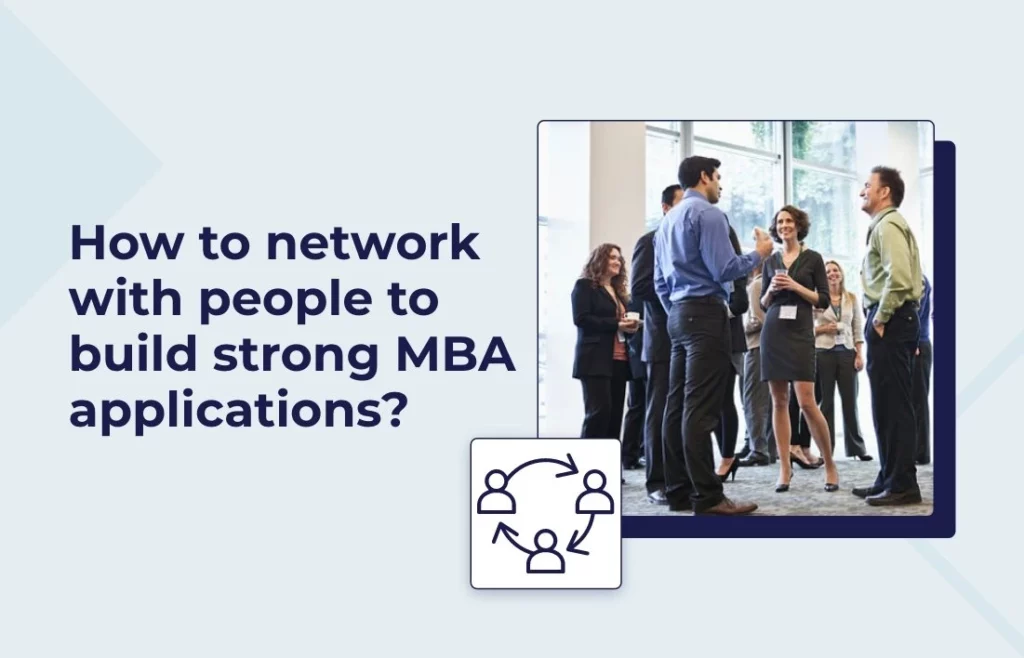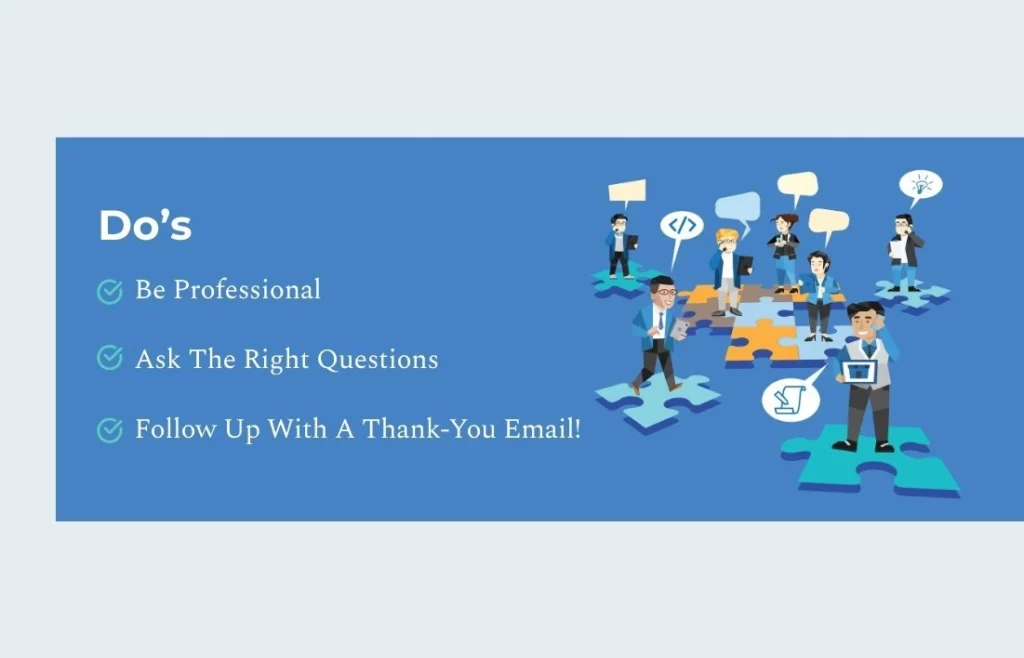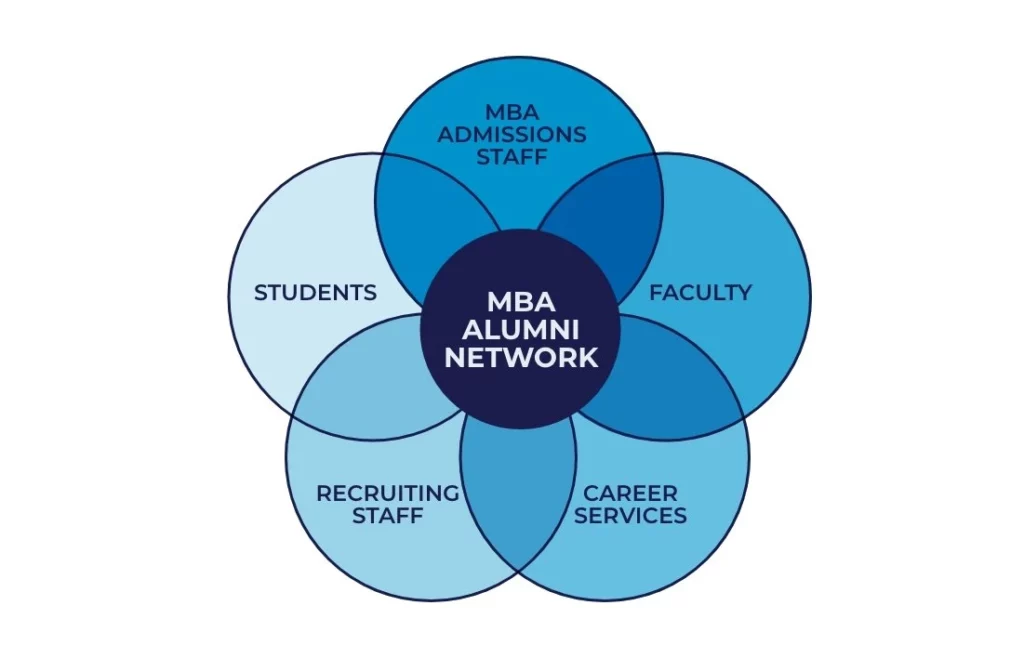How to Network with People to Build Strong MBA Applications

With the round one deadlines of the top MBA programs just months away, the MBA recruiting events are in full swing, and the runway is getting shorter, with the candidates’ engagement continuing to be very high, indicating another very competitive MBA application cycle.
In such a scenario, apart from a stellar MBA profile and mesmerizing MBA essays, what could boost your B-school chances is some “insider information”(ironically, also to make the MBA essays ‘mesmerizing’!).
School engagement is an important element of the MBA admission process as it demonstrates school interest in the MBA adcom. In addition, it could be a game-changer for your application as speaking with the MBA adcom members and interacting with current MBA students and school alumni with a career trajectory you hope to emulate is a great way of gaining important insights that will help you make a stronger MBA candidate and exhibits a strong interest…
Now that you understand the importance of networking for MBA application let us know how you can approach the different stakeholders and MBA alumni network and what are the right questions to ask to reap maximum benefits from the time and effort you invest in it.
Aspiring candidates need to understand that the goal of attending MBA events is to learn. To learn about the target schools. Hence, try to keep notes of the key learnings from each interaction. These fragments will be decisive when making a case for your MBA application.
In a line, we could say that the major goal is to understand, derive and deliver value. Confused? Let’s take this slowly.
THE DO’S AND DON’TS (DURING AN INTERACTION OR CONNECTING WITH MBA ALUMNI NETWORK

Let’s help you make the most of your interactions, whether you are attending a virtual event, a chat with current students, or having a call with an alum you reached out to, while also leaving a kind of favorable impression that can tip the scale in your favor when decision time comes around (you never know how an action may impact your decision!).
As an MBA hopeful, you must research the target programs comprehensively and carefully consider how you introduce yourself during these touch points to leave a favorable impression.
Be professional – Treating an interaction with the MBA alumni network, even when it’s just a coffee discussion with a very friendly person with the highest level of professionalism, speaks a lot about your character. Whereas being too casual, not being on time, or even worse – NOT SHOWING UP, all of this can reflect poorly on your candidacy.
Ask the right questions – Don’t go for very basic questions or questions that have been answered on the school/community website or are easily available on the internet. Another extreme to avoid is- while we do prefer candidates to go deeper and ask more complex questions but make sure you aren’t doing that just to impress the other party but are asking something that sincerely interests you and you believe will genuinely contribute to your understanding of the school community and the curriculum.
Also, it’s crucial to understand whether you are even asking the right question to the right person. So consider whom you are asking the question, do they have the required knowledge to help you with that particular aspect?
You must follow up – This is a common ethic and should go without saying, but it happens way too regularly. An email to express your gratitude/a thoughtful thank you email to everyone who spends their valuable time helping you along your MBA admission process is a must.
Although it’s common decency, it does have its own merits! A well-written email that emphasizes how your interaction has enriched your knowledge and helped to upgrade your MBA profile can play in your favor as they might end up being the one helpful information about any new development giving you the edge when it would matter the most!
HOW TO REACH OUT TO DIFFERENT KEY STAKEHOLDERS?

As we discussed prior, the goal is to learn. Hence, It’s helpful to be strategic and decide about the people who would be the key constituents you can learn from during the MBA admissions process. Below, we have mentioned several groups candidates generally interact with during their school engagement; however, if you get any other source group, it’s always better to pile up knowledge!
Now, what’s more, important is how to get in touch with different key stakeholders. For example, you could approach campus ambassadors and start attending webinars hosted by the school; also, you could grab hold of them through social sites such as Facebook or via Mail.
Furthermore, sites like Linkedin are crucial in connecting you with different stakeholders. While generally, on LinkedIn, we often hear that it’s hard to connect, and candidates often don’t get a proper response. However, we have a template that applicants use under “Add note” while sending connection requests to respective stakeholders. Applicants have connected with multiple alums and current students in the past.
Once you have successfully engaged in a conversation, you could invite them for informal coffee chats, pay a visit to the campus with them or to meet them, establish virtual interaction, and even ask them for casual restaurant visits. Remember you must be humble and polite but at the same time, try to extract as much information as possible to help you cut! Now quickly, let us take a look at the different stakeholders!
MBA Alumni network – one of the best sources of information. “They have been there, nailed the process, and graduated with excellence.” Moreover, it also helps you build an MBA alumni network that would allow for a longer-term perspective over your career. They are the best source of knowledge for how the school helped them in their target industry and goals. This will also enrich your understanding of how the school can help you achieve your goals in the targeted industry.
Students – while things may have changed a bit from when the school alumni went for their interview, the perspective and advice of currently enrolled students are invaluable in understanding the MBA admission process, culture, curriculum, and community.
Faculty – the school faculties are rich in industry knowledge and can be the key factor in shaping your profile. Moreover, at any time in their career, they must have sat on the admission committee; hence if you can impress them, congrats! You are halfway through it. Some of them might sit on admissions committees this year.
Career services – we all are aware of the role that career services play in pursuit of your higher career goals; well, they could too be resourceful as understanding the career resources and their approach for your target MBA programs is critical in deciding whether your post-MBA goals align with that of the school. Furthermore, in several instances, a representative from the career services (mostly the head of career services) might also be part of the MBA adcom.
Recruiting staff are fellow school representatives whose job is to meet with prospective students, advise them, and encourage them to apply to the school. Also, in many instances, the recruiting and MBA admissions staff can be the same and immensely helpful for candidates, but something like that doesn’t always happen.
MBA Admissions staff – the final piece of the puzzle! This team works with the aspiring applicants regarding sources who are better than those recruiting future MBA prospects. Therefore, the insights provided by them can directly affect your selection. Moreover, as some of them will also be part of the decision-making team on your admissions outcome, you must be at your best while meeting them for even a casual interaction!
Great! Now that we are done with the source groups, let us help you with some common questions you can ask while interacting with the MBA alumni network and current students.
For more details on questions to be asked to an adcom or recruiting staff, we are happy to hop on a call with you sometime this week to discuss all the relevant questions to be asked per your profile. Moreover, you can also hop on a quick 1:1 free Profile evaluation call with our team of experts to further help you with your networking strategy.
DIFFERENT QUESTIONS TO ASK WHEN INTERACTING WITH CURRENT STUDENTS & MBA ALUMNI NETWORKS.
It’s crucial to plan and think about all the relevant information you require to collect and what could be some questions that would help gain some intangible knowledge, something you can’t possibly find on a website. We recommend candidates not to bomb the person with an array of complex questions, just keep it a bit casual at first, like –
Why did you think it was a good time to return to school?
What made you choose this particular B-school and why?
What is the MBA culture here like?
How accessible are the faculty here?
How is the MBA alumni network here? Have you been able to utilize the alumni network both as a student / as an alumnus?
These are some common questions you could ask the MBA alumni network and current students. Now, let’s focus on some more complex questions an alumnus can help you with.
How much has your current role translated after learning new skills inside and outside the classroom?
What was the most beneficial thing you got to learn /or an experience you had while in business school? How do you use this aspect in your current role?
How good is the career management center here, and how did they work with you to achieve your professional goals?
How has an MBA from this top Business school set you apart from your colleagues and peers?
To end the interaction, you could use some light personal questions like- what was your favorite memory from your time in business school? And even ask how they think you would fare in the school curriculum and community.
Want to pursue an MBA but not sure if your profile fits?
Talk to our Profile Experts to know your chances for a top MBA Program.
GET A FREE PROFILE ANALYSISIF YOU HAVE AN ALREADY STRONG NETWORK, DO YOU NEED MBA CONSULTANTS?
This question is quite personal, depending on how strong a relationship one shares with different key stakeholders.
Also, the need for an MBA consultant will depend on what help you need in your applications.
You may need an MBA consultant if you don’t understand what a top-notch school may look for and how to align your narrative with the school’s expectations and sell your profile. Because no matter how strong your network is, no one will help you as a mentor to write the applications and spend countless hours on unlimited drafts with you to ensure your MBA application expresses your fit to the school in the best possible manner. This is generally the case for international applicants as they are not well-versed in what a global b-school may expect.
On the contrary, you may not need a consultant if you do not need extensive help, understand what your target school looks for, and have a good network to help you.
In this article, you can know better about your needs and if you need a consultant or not here.

I hope this article has provided you with some clarity on how you can network extensively. If you’d like, you can hop on a 1:1 profile evaluation call with our experts to better understand a consultant’s needs and where you stand against your dream schools.





Leave a Reply